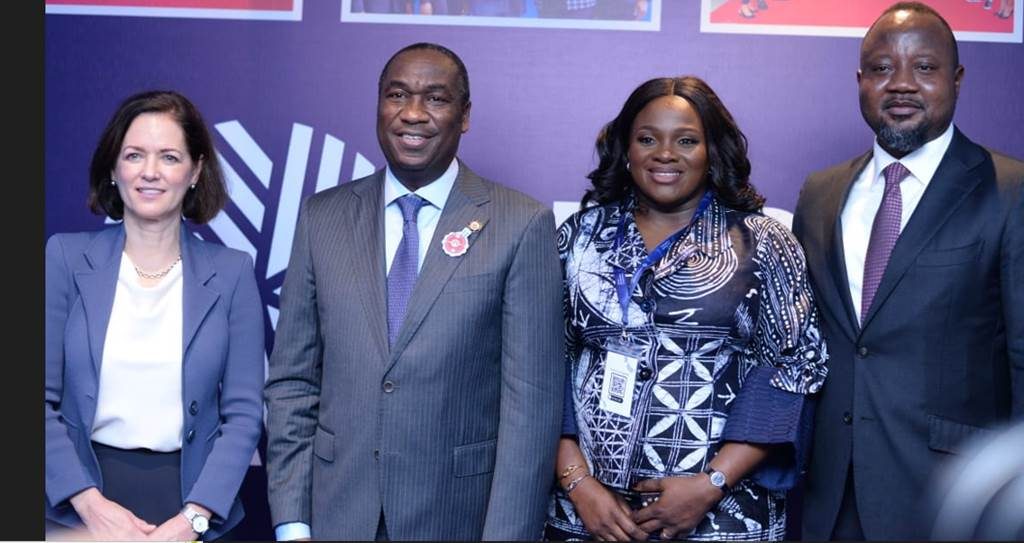
Left: President/CEO, CFA Institute, Margaret Franklin; Deputy Governor, Lagos State, Kadiri Obafemi Hamzat; President, CFA Society Nigeria, Ibukun Oyedeji and member, Board of Governors, CFA Institute, Banji Fehintola, at the 2023 CFA Institute Africa Investment Conference held in Lagos last week.
With over 400 million young Africans getting ready with the right professions, talents and skills set to be exported into the global workforce, the continent stands the chance of emerging the best destination for Foreign Direct Investments (FDIs) by the year 2035.
That future beckoning on Africa would only become reality through a deliberate re-thinking or re-strategizing of the abundant investment opportunities on the continent, embracing digital transformation, sustainable financing options that would lift the people from poverty in a diverging global landscape that is seeing the end of ‘cheap money’.
This was the verdict of participants and panelists at the Africa Investment Conference held at the Eko Hotel and Suites on Victoria Island, Lagos on Wednesday and Thursday last week organized by Chartered Financial Analyst (CFA) Society Nigeria and its partners from Ghana, East Africa, Mauritius and South Africa, among other African countries.
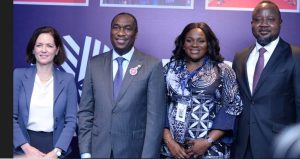
In her welcome address, President of CFA Society Nigeria, Ibukun Oyedeji, stated that the conference set out to advance investments and drive sustainable growth in Nigeria and Africa, adding that only such efforts would shape the future of Africa in the right trajectory. She disclosed that the two-day conference, which is was held physically in Lagos and virtually with the theme: The Emergence of Africa: A Rethink or Strategizing, had over 1000 viewers and young Africans participating through Zoom and other online channels.
“Our focus is to explore opportunities and network among individuals, investors, government representatives and other institutions to foster collaborations across Africa and by extension, the world,” she said.
President and Chief Executive Officer of CFA Institute, Marg Franklin, who said Africa features regularly as a continent with vast potential in most forums globally, stressed that the continent must leverage the opportunities and its young, intelligent, vibrant population to rewrite its narrative of violence, poverty and marginalized continent in the nearest future. She revealed that to further maximize the opportunities and vast potential in Africa, its leaders and good-spirited individuals must put mechanisms in place to direct 10 percent of the continent’s Gross Domestic Product (GDP) to mitigating the impacts of climate change since Africa remains the most vulnerable continent to the climate crises globally.
On his part, Lagos State Governor, Babajide Olusola Sanwo-Olu, who was represented by the Deputy Governor, Dr. Kadiri Obafemi Hamzat, said as the sixth largest economy in Africa, the state would remain open to the investment world. He added that Africa had been marginalized in the global scheme of things, but with the massive and expansive resources in Nigeria and other countries of Africa, the world has begun to pay attention to the continent.
He explained that with the state government’s THEMES agenda, Governor Sanwo-Olu and members of his team have embarked on expansion of the transportation network, conceived the Lekki-Epe International Airport and the Lekki Deep Seaport, which has started operations, among other economically viable projects.
The Deputy Governor maintained that as Nigeria’s financial hub, the Nollywood and entertainment sector that will soon see to the birth of the Lagos Film City, Lagos State would remain an investment destination of choice for not only African investors, but also global investors.
In the first panel titled: Medium-Term Outlook of Key African Economies, Chief Executive Officer, Economic Associates, Dr. Ayo Teriba, examined African and global economy the shocks induced by COVID-19, the Russian-Ukraine war and the Israeli-Hamas conflict. He stated that giving the dislocations and shocks caused by those crises, the global economy and indeed that of Africa in the new ear, would no longer be dependent on exports and industries, but by what he called de-industrialization, increasing FDIs and buying of industrial outputs.
“National economies are compensating for stagnation of exports with financialization and de-industrialization. These will create sectors that will replace declining industrial sectors. “But by and large, digital and technological advancement, ecological and technological shift from fossil fuels to renewable energy sources will shape the future as more activities will become dematerialized,” he stated.
Other speakers at the second panel tagged: The Search for Alpha: Where and How to Invest in Africa, stressed the need for young African to develop the appropriate skills set that would earn them a place in the global workplace. They stressed that African countries needed to get back to the basics and embrace production, work harder, de-emphasize the dollarization of their economies, avoid external borrowings, import less and export more, as well as convert their electoral legitimacy to greater economic gains.
For ADVERT Placement;
for EVENT Coverage;
Have story to PUBLISH;
HAVE Breaking story with pictorial evidence
OR wants to assist allcitynews.ng
by DONATIONS,
kindly contact us via ojezand@yahoo.com. Thank you.
Allcitynews.ng’s goal: To interface between policy makers & general public, most influential, informative and reliable issues-based online newspaper, working for unity, peace and development of the Country.
Disclaimer:
Comments expressed here do not in anyway reflect the opinions of allcitynews.ng or any employee thereof. It assumes no responsibility or liability for any errors or omissions in the comments.
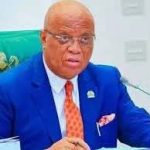



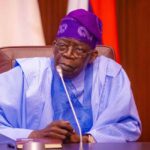



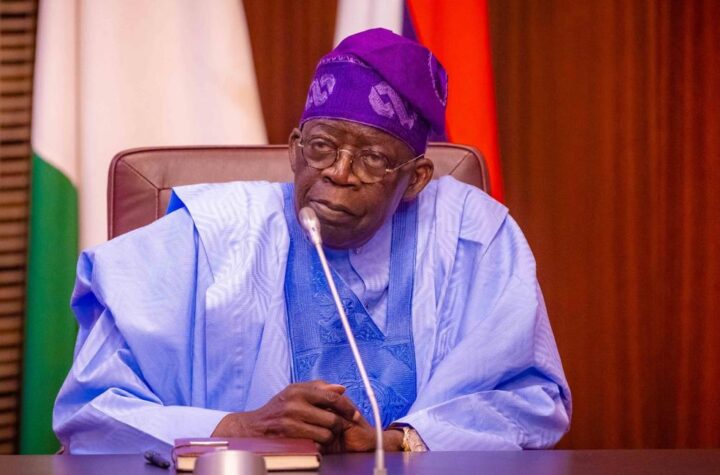

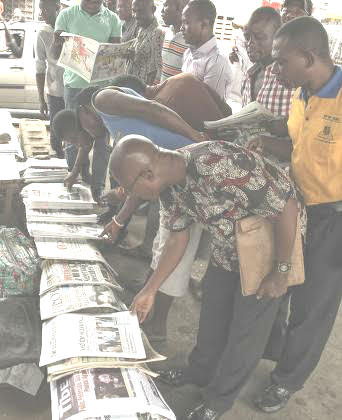
More Stories
JUST IN: FG Declares Two Days Public Holiday For Sallah
NEWS UPDATE @ DAWN, TUESDAY MAY 13, IN CASE YOU MISSED MONDAY 12/05/25 NEWSPAPER HEADLINES
BREAKING NEWS, three years after, Court sentences Lagos BRT driver to death by hanging over murder of Bamise